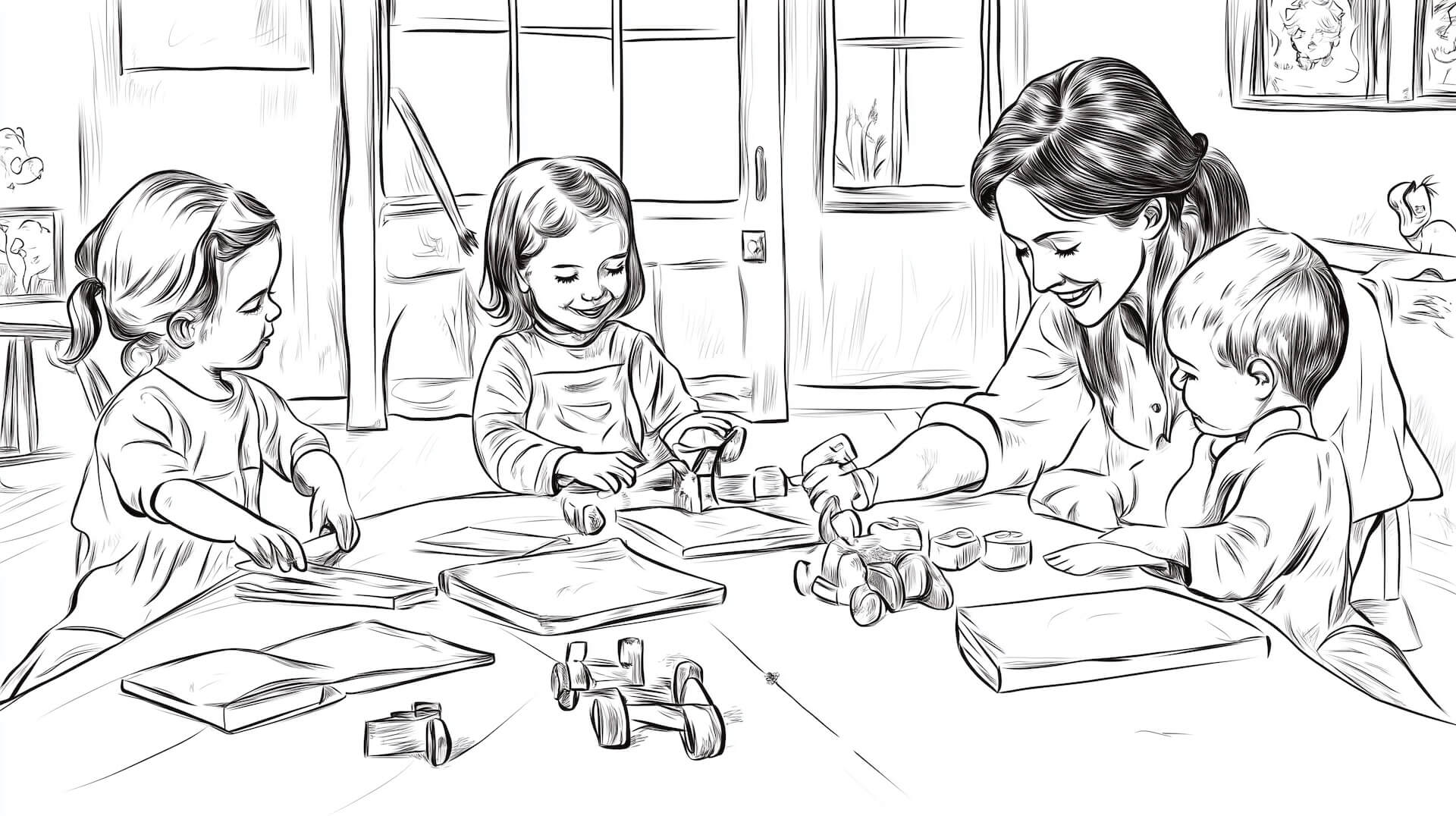What Preschool Teachers Wish Parents Knew

Insights from the Classroom
Ever wonder what your child is really like when they’re away from you? Or wish you had a crystal ball to understand what helps them thrive in a group setting? Preschool teachers don’t have crystal balls—but they do have a front-row seat to some of the most revealing (and reassuring!) parts of your child’s development.
And while every child is different, there are a few universal things preschool teachers wish they could gently whisper to every parent. These are the everyday insights that make preschool life smoother—and home life, too.
What You’ll Learn in This Post
- What behaviors are totally normal (even when they seem worrying)
- How to support your child’s independence
- Why routines and limits matter more than you think
- How to build stronger preschool-home connection
1. Big Feelings Are Normal (and Expected)
Preschoolers are still learning how to manage frustration, disappointment, and change. So yes, your calm, sweet child might throw their backpack across the room at drop-off—or cry when they don’t get the red marker.
What teachers want you to know: Outbursts, tears, and meltdowns are developmentally normal. Preschool is often the first place children are expected to share space, time, and materials all day. It’s a big adjustment.
What helps at home:
- Talk about emotions using simple words (“You’re feeling mad because it’s hard to wait.”)
- Let your child practice calming tools (breathing, squeezing a pillow, having a quiet space)
- Don’t expect perfection—expect progress
2. Your Child is More Independent Than You Think
At preschool, your child probably pours their own water, puts on their shoes, helps tidy up, and solves problems with peers—with a bit of coaching.
What teachers want you to know: Children rise to expectations when given space and time. It’s often at home where we do more for them than they truly need.
Try this at home:
- Let your child do small jobs (packing snacks, wiping spills, putting away toys)
- Give them choices when possible (“Do you want to put on your socks or shirt first?”)
- Resist jumping in too soon—mistakes are part of learning
3. Consistency is a Gift
Children thrive on predictable routines, clear expectations, and gentle but firm boundaries. It helps them feel safe—and makes transitions smoother.
What teachers want you to know: Saying “no” or holding a boundary isn’t mean. It’s loving. Preschoolers test limits because they need to know where the edges are.
What helps at home:
- Use routines for transitions (like a bedtime or morning checklist)
- Follow through calmly when limits are tested
- Keep your language short and clear (“It’s time to clean up now.”)
4. They Don’t Need to Know Everything—Yet
It’s tempting to worry if your child doesn’t recognize all the letters or write their name “just right.” But preschool isn’t a race to kindergarten.
What teachers want you to know: Social and emotional skills—like playing cooperatively, waiting their turn, or handling frustration—matter just as much (and often more) than early academics at this age.
Support learning by:
- Reading together daily and talking about the story
- Encouraging curiosity (“Why do you think that happened?”)
- Focusing on effort, not outcomes (“You really kept trying!”)
5. Your Words Matter—More Than You Think
How you talk about your child and their experiences shapes how they see themselves. Teachers often hear echoes of home in the way children describe themselves: “I’m not good at drawing” or “I always spill.”
What teachers want you to know: Your words have power. Celebrate effort, kindness, and resilience more than performance or perfection.
Try saying:
- “You worked hard on that.”
- “I love how you helped your friend.”
- “It’s okay to make mistakes—we all do!”
6. Drop-Off Wobbles Are Okay
That clingy goodbye? It doesn’t mean something’s wrong. In fact, many children cry during goodbyes—and bounce happily into play five minutes later.
What teachers want you to know: Consistent, confident drop-offs build trust. Avoid sneaking away, and try to keep goodbyes brief but loving.
What helps:
- Have a short goodbye routine (hug + phrase like “See you after snack!”)
- Trust the teachers—they’ve helped many children through this stage
- Ask the teacher for updates if it reassures you
7. We’re on the Same Team
Teachers care deeply about your child. When home and preschool work together, children benefit in big ways.
What teachers want you to know: Share what’s going on at home (new baby, bad sleep, changes). Let us know how we can support you.
To build a great partnership:
- Ask how your child’s day was (and not just about academics!)
- Share concerns early—before they grow
- Celebrate wins together—those little moments mean a lot!
Summary: What Preschool Teachers Wish Parents Knew
- Big feelings are part of the preschool journey
- Children are more capable than we think—let them try!
- Routines and limits create safety, not restriction
- Emotional skills matter just as much as ABCs
- Your words shape their self-image—speak kindly
- Separation takes practice—be calm and consistent
- Home and preschool are partners, not separate worlds
You’re Doing Better Than You Think
Preschool years are full of growth—for children and parents. There’s no such thing as doing it perfectly. But with a little insight from the classroom, you can support your child with confidence, compassion, and a whole lot more connection.
And remember: you don’t need to have all the answers. Just being curious, open, and loving goes a long, long way.
